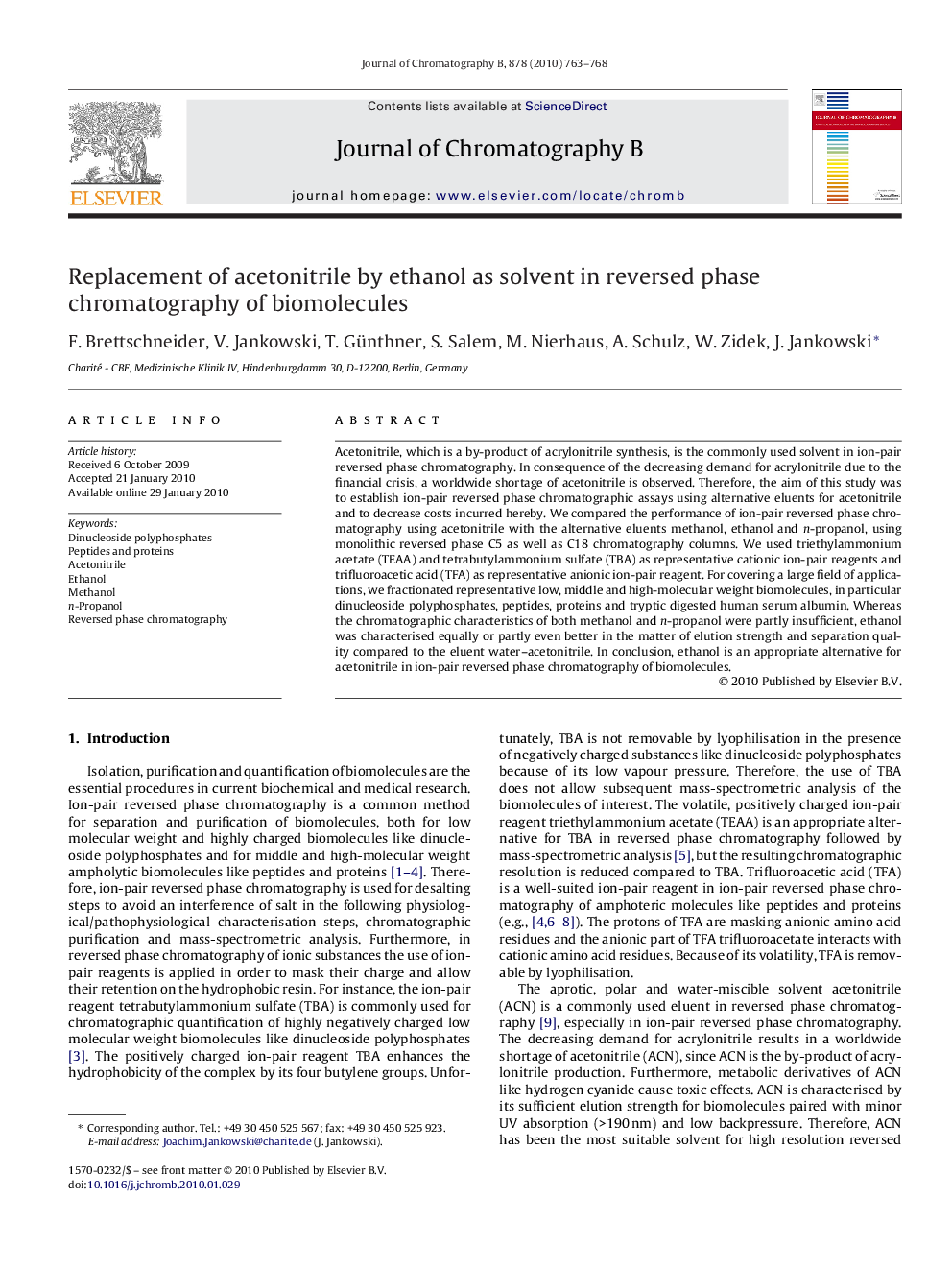| Article ID | Journal | Published Year | Pages | File Type |
|---|---|---|---|---|
| 1214359 | Journal of Chromatography B | 2010 | 6 Pages |
Acetonitrile, which is a by-product of acrylonitrile synthesis, is the commonly used solvent in ion-pair reversed phase chromatography. In consequence of the decreasing demand for acrylonitrile due to the financial crisis, a worldwide shortage of acetonitrile is observed. Therefore, the aim of this study was to establish ion-pair reversed phase chromatographic assays using alternative eluents for acetonitrile and to decrease costs incurred hereby. We compared the performance of ion-pair reversed phase chromatography using acetonitrile with the alternative eluents methanol, ethanol and n-propanol, using monolithic reversed phase C5 as well as C18 chromatography columns. We used triethylammonium acetate (TEAA) and tetrabutylammonium sulfate (TBA) as representative cationic ion-pair reagents and trifluoroacetic acid (TFA) as representative anionic ion-pair reagent. For covering a large field of applications, we fractionated representative low, middle and high-molecular weight biomolecules, in particular dinucleoside polyphosphates, peptides, proteins and tryptic digested human serum albumin. Whereas the chromatographic characteristics of both methanol and n-propanol were partly insufficient, ethanol was characterised equally or partly even better in the matter of elution strength and separation quality compared to the eluent water–acetonitrile. In conclusion, ethanol is an appropriate alternative for acetonitrile in ion-pair reversed phase chromatography of biomolecules.
